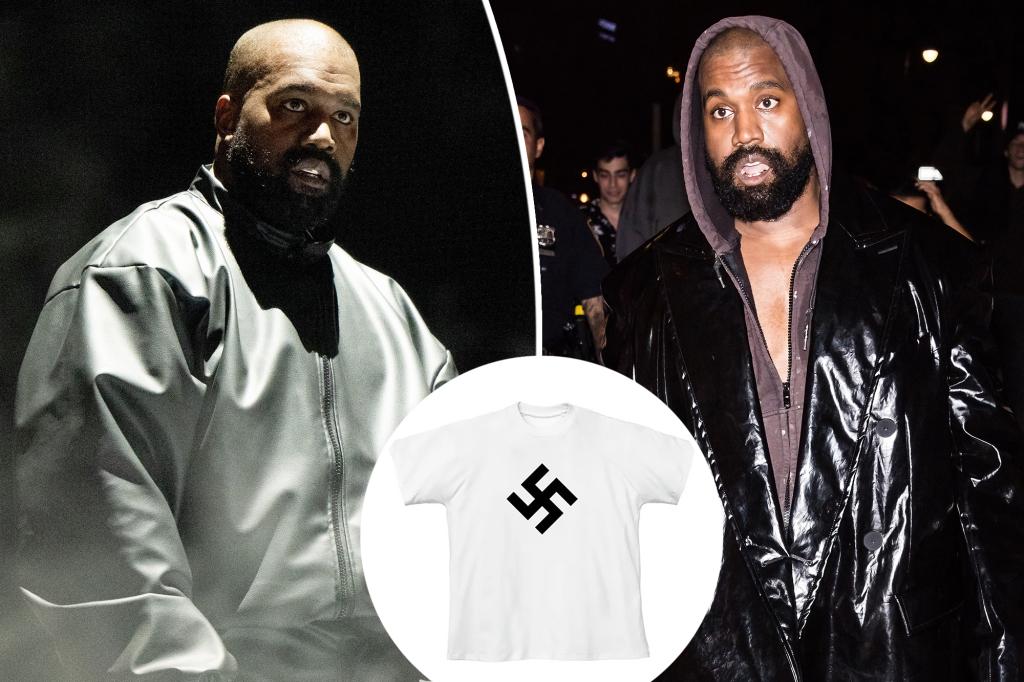Kanye West made headlines during the Super Bowl by airing a controversial ad that directed viewers to his Yeezy website, where a T-shirt featuring a swastika was available for purchase. The shirt, titled “HH-01,” which the Anti-Defamation League (ADL) interprets as a coded reference to “Heil Hitler,” was priced at $20. The ad was strategically shown only in select cities: Los Angeles, Philadelphia, and Atlanta. This choice of imagery by West has sparked significant outrage, given the swastika’s historical association with Nazism and its enduring symbolism of hate and oppression.
The commercial itself was notable not just for its content but also for its production. West bragged about filming the ad on his iPhone, revealing that the budget allocated for the video was instead spent on a new set of grills. This unconventional approach to advertising, while attention-grabbing, also raised questions about the approval process. Fox, the network airing the Super Bowl, approved the ad without seeing the swastika, highlighting potential gaps in content oversight. The ADL swiftly condemned the ad, emphasizing the swastika’s role in perpetuating antisemitism and white supremacy.
West’s history of making antisemitic remarks adds depth to the controversy. Despite apologizing in December 2023 for similar comments, he continued to espouse such views, tweeting, “I love Hitler” and “I’m a Nazi.” These statements, along with the release of the swastika T-shirt, which he described as his “greatest performance art piece,” suggest a deliberate embrace of inflammatory rhetoric. This behavior has drawn sharp criticism, with many viewing it as an escalation of his prior contemptuous remarks.
Beyond the ad, West’s recent behavior has been increasingly erratic and concerning. He made headlines for a tweet about his wife, Bianca Censori, suggesting a controlling attitude towards her, and commented on her sheer dress at the Grammys. These actions, combined with his antisemitic comments, paint a picture of a figure struggling with personal and public demons, raising questions about the impact of his words and actions on both his personal life and public image.
The broader implications of West’s actions extend beyond his personal brand. Using a platform as vast as the Super Bowl to promote hate symbols underscores the dangers of unchecked hate speech in media. This incident highlights the responsibility of broadcasters to vet content thoroughly and the need for accountability in preventing the spread of hateful ideologies.
In conclusion, Kanye West’s Super Bowl ad and subsequent actions have sparked significant backlash, emphasizing the need for responsible media practices and the consequences of promoting hate. While West’s brand may weather this storm, the incident serves as a reminder of the power of media and the importance of combating hate speech.
